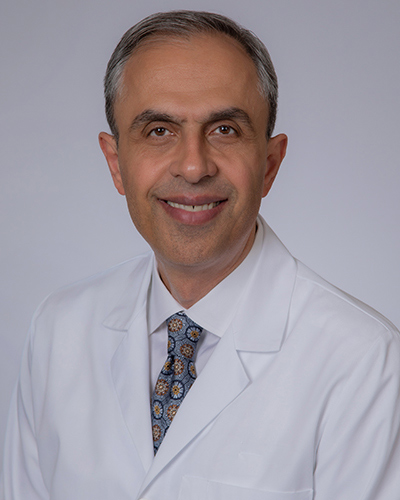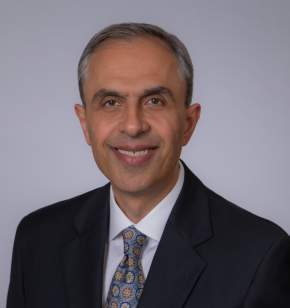Chemotherapy for Craniopharyngioma


Craniopharyngiomas are benign (non-cancerous) brain tumors that typically form at the base of the brain behind the nose. Large tumors may press on surrounding brain structures such as the pituitary gland, hypothalamus, and optic nerves. This could lead to issues with growth, vision, and the production of certain hormones.
Craniopharyngiomas are rare and develop in about 0.5 to 2 individuals per million people per year. This type of tumor is more commonly found in children aged 5 to 14 years and in older adults 50 to 74 years of age. The survival rate is excellent, with most individuals living longer than 10 years after diagnosis. However, many consider craniopharyngiomas a chronic condition because they can grow back even after being surgically removed, and patients are thus monitored through regular imaging tests.
Treatment options for craniopharyngioma include surgery, radiation, and occasionally chemotherapy. Current chemotherapy treatment involves injecting medications directly into the tumor. However, the benefits of chemotherapeutic agents are still under investigation.
What Are the Treatment Options for Craniopharyngioma?
There are several treatment options for craniopharyngioma, including:
Surgery
Surgery involving whole or partial removal of the tumor is the most common treatment for craniopharyngioma. When possible, surgeons will try to remove the entire tumor. However, this is often difficult because craniopharyngiomas are close to numerous sensitive and critical tissues and tend to adhere to these vital structures.
To preserve these surrounding structures, surgeons may remove only a part of the tumor. In these cases, radiation therapy is typically administered following surgery.
Why should you have your surgery with Dr. Cohen?
Dr. Cohen
- 7,500+ specialized surgeries performed by your chosen surgeon
- More personalized care
- Extensive experience = higher success rate and quicker recovery times
Major Health Centers
- No control over choosing the surgeon caring for you
- One-size-fits-all care
- Less specialization
For more reasons, please click here.
Radiation Therapy
After surgery, radiation therapy can be used to inhibit the growth of craniopharyngioma from the remaining tumor cells after surgery. In cases when surgery is too risky, radiation therapy may be administered alone. Radiation therapy involves aiming multiple beams of energy precisely at the tumor cells while sparing healthy tissues nearby.
Chemotherapy
Although chemotherapy is a common treatment for a variety of cancers, its efficacy in the treatment of craniopharyngioma is still under intense investigation. Previous studies have focused primarily on the impact of two promising chemotherapeutic agents, bleomycin and interferon-alpha, in a small series of craniopharyngioma patients.
Treatment is typically intratumoral, meaning that the medications are injected directly into the tumor or its cyst. Several studies report tumor shrinkage and delayed tumor progression when using these treatments, with interferon-alpha exhibiting a more favorable safety profile than bleomycin. However, the exact dosing and treatment regimen has not yet been standardized.
Additionally, treatment effect and risks of incurring neurological damage may vary based on tumor characteristics such as size, location, and composition, as well as patient factors such as age, general health, and presence of other medical conditions.
New Treatments and Clinical Trials
Several new treatments and ongoing clinical trials are testing new therapies for craniopharyngiomas. There are currently three clinical trials recruiting participants to test the following medications:
- Nivolumab and DAY101 for Treatment of Craniopharyngioma in Children and Young Adults
- Vemurafenib and Cobimetinib in Treating Patients With BRAF V600E Mutation Positive Craniopharyngioma
- Tocilizumab in Children With Adamantinomatous Craniopharyngioma (ACP)
If you or someone you know with craniopharyngioma is interested in participating in a clinical trial, discuss the risks and potential benefits with your healthcare provider.
What Are the Symptoms of Craniopharyngioma?
Despite being benign under the microscope, large craniopharyngiomas can cause troublesome symptoms by compressing their surroundings. Besides headache and nausea, other common symptoms include the following:
Pituitary Gland Dysfunction
The pituitary gland is essential for a range of hormonal activities that govern how our bodies grow and function. If the gland is compressed, patients with craniopharyngioma exhibit hormonal abnormalities. Deficits can impact any bodily system regulated by the pituitary gland. This results in a wide variety of symptoms such as fatigue, weight gain, poor appetite, and sexual dysfunction that may come on gradually and appear unrelated at first.
In children, growth hormone deficiency can result in slowed growth. Sex hormone insufficiencies can cause delayed puberty and a lack of menses in women. Craniopharyngiomas can also cause early puberty, although this is rare. Thyroid-stimulating hormone deficiency is also linked to a range of symptoms, including fatigue, generalized weakness, irregular menstrual cycles, and forgetfulness.
Vision Problems
The optic nerves, which transmit visual signals to the brain, partially overlap right above the pituitary gland to form the optic chiasm. A craniopharyngioma can compress both the optic nerves and the optic chiasm. This can cause two distinct visual symptoms: blurry vision (reduced visual acuity) and loss of vision in specific areas of the visual field. Tumor decompression through surgery can help alleviate these symptoms.
Cerebrospinal Fluid Blockage (Hydrocephalus)
The ventricular system is a network of fluid-filled chambers (ventricles) in the brain that produces and circulates cerebrospinal fluid (CSF). A craniopharyngioma may block some of the channels that connect the ventricles. Consequently, CSF will not be able to circulate correctly, and it will accumulate in the brain, leading to a condition known as hydrocephalus.
Symptoms vary depending on the age of the affected person. Young babies may develop poor feeding habits, become irritable, and have a larger head. Children and adults may have headaches, vomiting, and impaired vision.
The most common treatment option for hydrocephalus is tumor removal or surgical implantation of a drainage system, known as a shunt. This involves using a long, flexible tube with a valve that maintains CSF flow in the appropriate direction and at the correct rate.
Hypothalamus Dysfunction
The hypothalamus is linked to the pituitary gland and oversees hormone secretion and a variety of biological processes. Compression of the hypothalamus can cause its dysfunction. One of the more severe manifestations of abnormal functioning is a condition known as hypothalamic obesity. This is characterized by excessive weight gain despite calorie restriction and lifestyle adjustments.
Changes in behavior and irregularities in body temperature, thirst, heart rate, blood pressure, and sleep-wake cycle are also signs of hypothalamic dysfunction. Treatment options include hormone supplements for specific hormone deficiencies such as hypothyroidism and appetite-suppressing medications for overeating.
Key Takeaways
- Craniopharyngiomas are non-cancerous tumors.
- Craniopharyngiomas are commonly treated with surgery and radiation, with chemotherapy used in certain cases.
- Emerging treatments for craniopharyngiomas include immunotherapy and tumor cell inhibitors.











